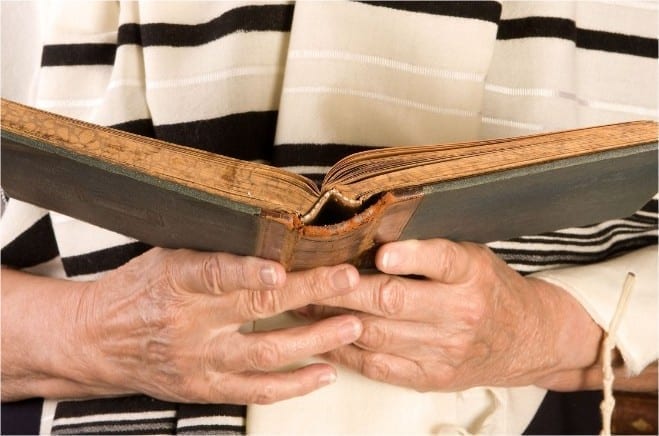This past Shabbos I was intrigued by a concept with which I wasn’t previously familiar. Our son, Rabbi Benzion, expounded on the Mishnah (Pirkei Avos 1:4): “Let your house be a meeting place for the wise.” On a basic level, he explained, this means that the quality of our homes should be such that wise people would be comfortable assembling there. But he added another dimension that is truly amazing, citing Reb Levi Yitzchak of Berditchev and the Bnei Yissas’char. According to Chazal, in the Days of Mashiach, all of the batei knesses and batei midrash all over the world will be miraculously transported to Eretz Yisrael. Applying the principle of kal vachomer, where one infers from a minor to a major premise, if we are promised that the communal spaces in which people spend limited amounts of time and perform fewer mitzvos will be transferred to the Land of Israel, how much more so will our individual homes in the Diaspora qualify if we fill them with the sounds of Torah and mitzvos! For indeed, the Jewish home has far more mitzvos d’Oraisa associated with it, such as mezuzah, kashrus, taharas hamishpachah, tzedakah, Birkas Hamazon, etc. The caveat, however, is that in order to be worthy of this translocation, these things must occupy front and center in our lives. For example, when redecorating our homes, the additions and changes should be done for the sake of being able to host tzadakah events and the like more beautifully, improve our capacity for hachnasas orchim, create happier places in which to raise Torah-true families, and express gratitude to the Master of the World for His ongoing blessings.
Even more mind-boggling, according to the Bnei Yissas’char, is that if we are constantly aware of these holy objectives, not only will our homes move to Eretz Yisrael with us when Mashiach comes, but even while in galus we will be given credit for “yishuv ha’aretz,” fulfilling the mitzvah of living in the Land of Israel! This teaches us that “Eretz Yisrael” is not only a geographical location but a state of being that is mobile, has no borders and is available to us wherever we may find ourselves on the globe. The challenge, Rabbi Benzion pointed out, is mindfulness, not losing sight of why Hashem has placed us on this earth. He recounted the following moving anecdote about the great Lithuanian sage, Reb Elchanan Wasserman, zt”l, that should give us pause. Reb Elchanan was the head of a prominent yeshivah in Europe and found himself in dire need of funds to keep the institution afloat. To this end, he journeyed to America to solicit the necessary capital. Reb Elchanan was apprised of a wealthy entrepreneur, one Joe Cohen, who originated from Reb Elchanan’s hometown and was more likely to be a sympathetic donor. He made an appointment to see him in the office of his successful coat factory. When the two men saw each other for the first time in years Reb Elchanan exclaimed, “Yossel, is that you?” to which Joe countered, “Chuni, is that you?” It was an emotional reunion, and they spent a considerable amount of time catching up on the events that had transpired since their early days in cheder where they had been best friends.
Eventually Reb Elchanan got up to leave, expressing delight over having had the opportunity to visit with his childhood friend. Yossel assured him that while he too was gratified by the visit, he wanted to know the true purpose of Reb Elchanan’s call. Reb Elchanan told him that back in Europe he had heard that Yossel owned a factory that manufactured coats, and he had a button that needed to be resown on his. It seems that despite numerous attempts to reattach it, it kept falling off. He wondered if one of Joe’s master tailors could sew it on in a way that it wouldn’t happen again. Joe was flabbergasted. “A button?” he exclaimed. “Why, I’ll give you a whole new coat, of the finest quality!” “No,” Reb Elchanan demurred, “I love this coat. All I want is for my button to be secured.” Without delay the tailor was summoned, the button was sewn on and Reb Elchanan departed. That night Joe Cohen couldn’t sleep, and with the break of dawn he made his way to Reb Elchanan’s lodgings. Joe pleaded with him to tell him the truth about his trip across the ocean, since he found it impossible to believe he would have spent several weeks on a ship simply to have a button sewn on an old coat! After much urging, Reb Elchanan finally stood up, grabbed Yossel by the lapels and said to him with great emotion, “You think it’s impossible for me to have crossed an ocean for a button, yet you have no problem accepting the fact that your neshamah traversed the vast chasm between heaven and earth, only to be dissipated these many years in the pursuit of selling coats!” Yossel was overcome by Reb Elchanan’s rebuke and dissolved in a flood of tears. Shaken to the core, he reorganized his life, set aside time for learning Torah and became a major supporter of Reb Elchanan’s yeshivah and other Torah institutions. Perhaps we, too, expend excessive amounts of time thinking about “buttons.” We must be careful not to get lost in the “fluff,” the distractions that sometimes make it hard to keep our eye on the ball. We need to make sure that our homes reflect the understanding that our neshamos didn’t come all this way for the sake of minuscule and illusory considerations. Let us hope that in the very immediate future our shuls, yeshivos, kollelim, and most importantly our homes, will find themselves flourishing on the soil of Eretz Yisrael, with the coming of Mashiach.





